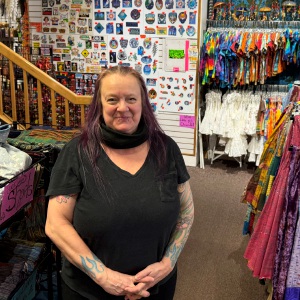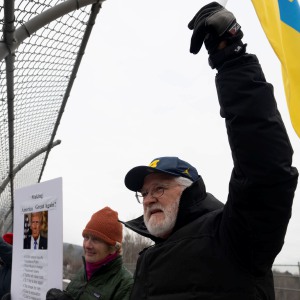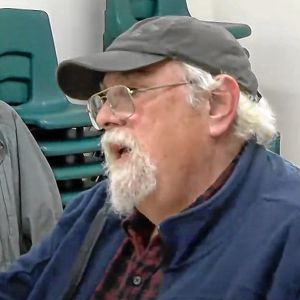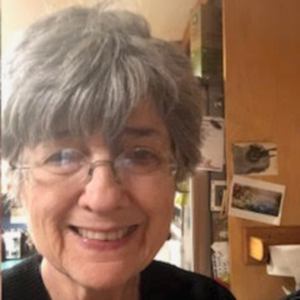Columnist Carrie N. Baker: Long overdue U.S. apology for Indian boarding schools a first step

Carrie N. Baker
| Published: 11-27-2024 12:39 PM |
On Friday, Oct. 25, at Gila River Indian Community in Arizona, President Joseph Biden delivered a formal apology on behalf of the United States to an assembly of Native American leaders for the genocidal impact of 150 years of U.S. Indian boarding schools, which sought to erase Indigenous people, culture and languages.
“I formally apologize as president of the United States of America for what we did,” said Biden. “It’s long overdue.”
Biden described the federal Indian boarding system: “Children abused — emotionally, physically, and sexually abused. Forced into hard labor. Some put up for adoption without the consent of their birth parents. Some left for dead in unmarked graves. And for those who did return home, they were wounded in body and in spirit— trauma and shame passed down through generations.”
Biden is the first president to visit Indian country, and the first to apologize for the atrocities of the U.S. government’s boarding school system that mandated removal of children from their families and tribes, devastating Native American children and families.
“Generations of Native children stolen,” said Biden. “The federal Indian boarding school policy, the pain it has caused, will always be a significant mark of shame, a blot on American history. I am here today to right a wrong, to chart a new path toward a better future for us all.”
This apology, long sought by generations of Native Americans, resulted from a three-year campaign led by Interior Secretary Deb Haaland, a member of New Mexico’s Laguna Pueblo and the first Indigenous person to head the U.S. Department of the Interior, which oversees U.S. relations to American Indians, Native Alaskans and Native Hawaiians.
In June 2021, shortly after her appointment to head the Department of the Interior, Haaland announced the formation of a Federal Indian Boarding School Initiative to recover the history and address the harms of the U.S. government’s policy of taking Indigenous children from their families and communities. Haaland has traveled across the country on a “Road to Healing” tour to hear the stories of Indigenous survivors of the federal Indian boarding school system and connect communities with trauma-informed support.
After an extensive investigation, the Interior Department released a report in May 2022 with the first-ever list of federally operated Indian boarding school sites and associated marked and unmarked burial sites. The investigation found that from 1819 to 1969, the federal government operated or supported 408 boarding schools across 37 states and territories.
Article continues after...
Yesterday's Most Read Articles
 Long-vacant former Faces spot in Northampton gets new tenant
Long-vacant former Faces spot in Northampton gets new tenant
 Here come the sweetness: Four new businesses prepping to open in downtown Northampton
Here come the sweetness: Four new businesses prepping to open in downtown Northampton
 Local ‘Hands Off!’ standouts planned as part of national effort
Local ‘Hands Off!’ standouts planned as part of national effort
 Area property deed transfers, April 4
Area property deed transfers, April 4
 Hatfield Select Board removes elected Housing Authority member
Hatfield Select Board removes elected Housing Authority member
 Shutesbury reviewing how to improve safety on Lake Wyola in wake of accident last summer
Shutesbury reviewing how to improve safety on Lake Wyola in wake of accident last summer
The department has identified marked and unmarked burial sites at approximately 53 schools across the system. The report has maps with the general locations of schools in current states and profiles of each school. To document the experiences of the generations of Indigenous people who attended the federal boarding school system, Haaland launched an oral history project in September 2023 to gather first-person survivor narratives.
“This is the first time in history that a United States Cabinet Secretary has shared the traumas of our past and I acknowledge that this trauma was perpetrated by the agency that I now lead,” said Haaland after Biden’s apology. “For decades, this terrible chapter was hidden from our history books. But now our administration’s work ensures that no one will ever forget.”
“We must know the good, the bad, the truth of who we are as a nation,” said Biden. “That’s what great nations do. We learn from history, and we remember so we can heal as a nation.”
Biden’s apology is just a first step, said Indigenous advocates, who are calling for the return of the remains of children who died at one of the first and most notorious federal Indian boarding schools, the Carlisle Indian Industrial School, under the Native American Graves Protection and Repatriation Act.
“We ask the administration to expedite the return of our relatives buried on these former school grounds to their rightful resting places,” said Mark Macarro, president of the National Congress of American Indians..
Indigenous advocates also are calling on the U.S. government to fully fund initiatives requiring all schools to teach the Indigenous languages of their regions and restoring original place names across the landscape — from mountains and rivers to cities and streets — returning them to their Indigenous names in Native languages.
“Such restoration of language and place names is not merely symbolic but represents a fundamental act of cultural justice and healing, returning what was systematically erased through colonization,” said Joely Proudfit, a professor at California State University San Marcos.
“As proud citizens of our Tribal Nations and of the United States, we hold hope that this historic moment will be a catalyst for lasting reparative measures,” said Macarro. “True healing and justice demand further action. We urge Congress to pass legislation that would further illuminate this history and support the ongoing journey toward healing.”
Carrie N. Baker is a professor in the Program for the Study of Women and Gender at Smith College and a regular contributor to Ms. Magazine.






 Guest columnist Dr. Shelley Berkowitz: Single-payer health care just needs vote
Guest columnist Dr. Shelley Berkowitz: Single-payer health care just needs vote Guest columnist John Saveson: Use your spending power for the planet
Guest columnist John Saveson: Use your spending power for the planet Betty Ussach-Schwartz: The greatest grift of all
Betty Ussach-Schwartz: The greatest grift of all Jerry Halberstadt: Problems at Northampton Housing Authority seen in many housing programs
Jerry Halberstadt: Problems at Northampton Housing Authority seen in many housing programs
